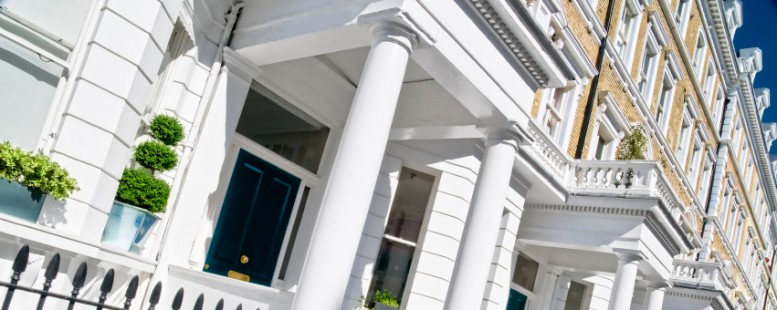Our Opinion: 2016
London’s falling property market

Unlike much of the rest of the UK, house prices in London have risen sharply in recent years, and surpassed their pre-2008 peaks. This started in the “super-prime” areas of central and west London. But it quickly spread out to the rest of the capital as those priced out of those areas moved to less fashionable places.
According to the Land Registry, average prices for Greater London have risen by more than 40% in the last three years alone. The Nationwide puts it even higher, with adjusted prices increasing by over 50% from 2012 to 2015.
However, this process may be about to go into reverse…
One of the things that has driven the London market higher, apart from ultra-low interest rates, is the influx of foreign cash. Sky-high commodity prices meant that large amounts of money flowed into the Persian Gulf and Russia. Because those regions aren’t exactly the most stable parts of the world right now, many of the super-rich scrambled around for a safe-haven, and found it in London prime property.
Similarly, many wealthy investors in the eurozone also saw UK property as a safe haven.
This process was accelerated by Britain’s generous tax system – the ability to buy property through overseas companies allowed foreign investors to avoid most taxes. In the six years to 2015, £100bn worth of property was bought by foreign investors in this manner.
However, all of these ‘positives’ for the London market are unwinding. Falling commodity prices have slashed the amount of money flowing into the Gulf states. The eurozone seems to be slowly recovering, although another crisis can’t be ruled out.
Most significantly, George Osborne is moving to tax high-end property much harder, imposing additional taxes on purchases through companies, for example.
But it’s not just on the demand side. High prices are doing what you’d expect them to do – helping to boost supply. As the FT recently noted, more than 50,000 apartments in the £1m-plus target market are either being built or are in the pipeline. This is despite the fact that less than 4,000 such flats were sold in 2014, generally considered to have been a very good year for the London property market. Such a mismatch between supply and demand is starting to have an effect on prices. One high-end estate agent has seen transactions plunge by nearly two-thirds.
Not only are sales down, but those prime houses and flats that are selling, are selling for less. Estate agent Knight Frank believes that asking prices have fallen by as much as 7% in areas such as Knightsbridge over the past year. What’s more, prime buyers are starting to ask for substantial discounts.
Some of the developers behind London’s swankiest new digs are struggling to sell their units. Asking prices for flats in the redeveloped Battersea power station development have reportedly been slashed, with one reduced from £6m to £4m over the past year (although the developer puts the price cuts down to some off-plan buyers being rather too “ambitious” with their initial asking prices). And Capco, the developer behind a luxury development in Earls Court, said sales have slowed as a result of “challenging conditions” in the residential market.
As well as the drop in foreign owners, demand is set to be hit further by measures to curb buy-to-let investing. Osborne has already changed the rules to make the tax treatment of mortgage interest far less favourable than it was. And from April, a stamp duty surcharge of 3% will be applied to all second homes, including buy-to-let properties. These changes will make it harder for landlords with mortgages to cover their expenses, particularly if interest rates ever think of rising again.
The Bank of England is also discouraging banks from lending to landlords, by increasing the amount of capital they have to hold against such loans.
Overall, it is clear the government thinks that the sector creates more problems than it solves and wants to cut it down substantially from its current size.
The slump in demand is partly down to rising supply, but it’s also a side-effect of the collapse in emerging-market currencies and the commodities crash, both of which have dented the buying power of overseas speculators.
Analysts at Morgan Stanley are forecasting that prices will tumble by between 10% and 20%. Careful planning around property purchase has never been so important.
17th March 2016
